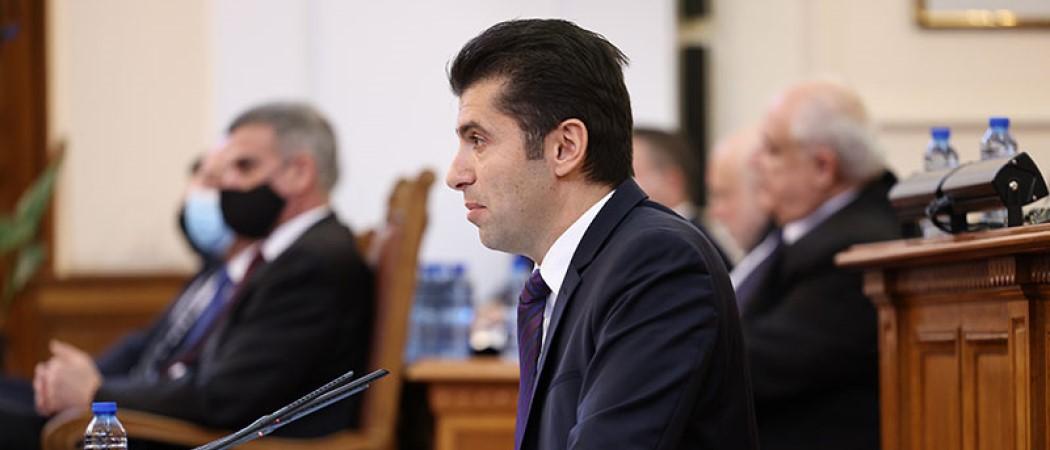The government hopes public and private investments in new centre will help Bulgaria reverse brain drain and make the capital city Sofia a top destination for computer scientists

Kiril Petkov, Bulgarian prime minister. Photo: Bulgarian government
The Bulgarian government announced with great fanfare the launch of a new artificial intelligence (AI) and computer science research institute in Sofia, which is intended to boost the country’s credentials as a science and technology hub in central and eastern Europe.
Bulgarian prime minister Kiril Petkov said the government is putting $100 million into the Institute for computer science, artificial intelligence and technology (INSAIT). Tech companies Google, DeepMind, Amazon and SiteGround announced an additional $10.5 million investment, while Bulgarian entrepreneurs will invest $600,000.
“This model of financing will create a bridge between science and business, supported by the government and the state,” Petkov said at the launch event in Sofia on Monday.
Petkov is a technocrat who took office in December, ending a period of political turmoil in Bulgaria which saw two national elections fail to produce a majority in 2021. He holds an MBA from Harvard and is a long time investor in technology start-ups in central and eastern Europe. His election raised hopes the Bulgarian government would focus its attention on high-tech investments and attracting back the science and technology talent the country had lost to the west.
Speaking at the event on Monday, Petkov said the $100 million investment is a sign that he will keep “a promise given by our government to bring back to Bulgaria the most talented minds Bulgaria has.”
EU research commissioner Mariya Gabriel, a Bulgarian national, was evidently pleased and impressed, saying the new institute will, “compete in the global Champions League of scientific institutes” and could become a “platform for Nobel Prize winners.”
INSAIT is the brainchild of Martin Vechev a Bulgarian computer scientist who left the country twenty years ago to study and teach at the world’s most prestigious universities. He is now planning to split his time between a professorship at ETH Zurich and chairing the supervisory board of INSAIT. ETH Zurich and the Swiss Federal Institute of Technology in Lausanne (EPFL) are also partners in the new institute.
Vechev noted the institute is the first in eastern Europe to attract this level of investment from governments and companies. He wants INSAIT to become one of the places where “discoveries are made that change the world” and hopes the institute will be a magnet for talent and investors from around the world.
The centre will host research and education programmes in artificial intelligence, computer science, machine learning, computer vision, information security and quantum computing. The aim is to quickly attract world-class faculty to train the next generation of experts in these fields.
Structural problems
Against the backdrop of European Commission efforts to convince member states to increase R&D budgets, Bulgaria has one of the lowest R&D investment rates in the EU. Only 0.75% of its GDP goes to financing research and development, making its universities and research institutes less attractive to scientists and innovators.
In addition to having an underfunded R&D system, Bulgaria’s population is shrinking due to a low birth rate and migration. Around 30,000 Bulgarians are leaving the country every year.
Dan Shechtman, professor of materials science at Technion, Israel’s institute of Technology, said the establishment of INSAIT is a step in the right direction, but the Bulgarian government needs to do more to encourage people to stay in the country. “It is the government’s job […] to make sure that this institute does not produce experts for Europe, but rather experts for Bulgaria,” he said.
The EU is struggling to establish a more balanced environment for talent in research and innovation. Well-endowed universities and research labs in western Europe have a long been able to attract talent from around the world, while sister institutions in countries in eastern Europe where there is less government support and less dynamic private sectors, are fighting an uphill battle to compete.
More than 90% of the money available under the EU’s previous research programme Horizon 2020 went to countries in northwest Europe. That ratio is unlikely to change under the new programme Horizon Europe.
EU member states are now working on the rollout of a refreshed European Research Area (ERA), a tedious policymaking process aimed at increasing R&D investment to 3% of GDP across all EU member states, and at implementing reforms in regions and countries that are lagging behind.
At the Sofia event, the president of the European Research Council Maria Leptin said the basic science funding agency is awarding most of its grants to Europe’s top institutions and universities. Leptin does not think the EU research funding system is biased against eastern Europe, but said researchers in these countries need state of the art facilities, better working conditions and the opportunity to work with world-class colleagues every day.
“[INSAIT] has set itself very high ambitions to create world class research and education programmes,” said Leptin. “We actually know that such world class research and highly-skilled graduates will also attract international companies and high quality jobs, as well as creating spin-offs.”





 A unique international forum for public research organisations and companies to connect their external engagement with strategic interests around their R&D system.
A unique international forum for public research organisations and companies to connect their external engagement with strategic interests around their R&D system.